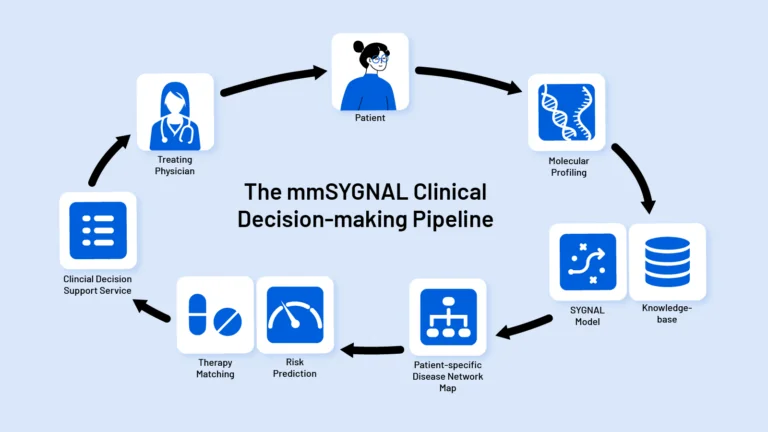New Diagnostic Method Predicts Therapy Response in Lung Cancer Patients
By using single-cell analysis to measure metabolic activities in rare disseminated tumor cells taken from non-small cell lung cancer (NSCLC) patients, ISB researchers and their collaborators can accurately predict how patients will respond to various cancer therapies, and how treatments will impact a patient’s physiological performance and survival.

By using single-cell analysis to measure metabolic activities in rare disseminated tumor cells taken from non-small cell lung cancer (NSCLC) patients, ISB researchers and their collaborators can accurately predict how patients will respond to various cancer therapies, and how treatments will impact a patient’s physiological performance and survival.

Additionally, researchers pinpointed the molecular basis underlying these metabolic states and identified potential treatment strategies for lung cancer patients who are unlikely to respond well to standard chemotherapies or targeted therapies. These results were published in Nature Communications.
A complementary tool
“Our metabolic assay can provide unique information complementary to tumor genetics and other clinical factors for improved cancer diagnostics. For example, tumor genetics can identify whether the patients are bearing targetable driver oncogene mutations and thus segregate patients into various chemo- and targeted therapy regimens,” said Dr. Wei Wei, assistant professor at ISB and a corresponding author on the paper. “Our metabolic assay can further reveal whether patients are likely — or unlikely — to benefit from the standard chemo- or targeted therapies identified by tumor genetics. This is important particularly for newly diagnosed patients who may benefit from such predictions prior to the onset of therapy.”
The single-cell metabolic assay developed in this work is simple, least invasive, and can, in principle, be performed in any clinical lab equipped with a fluorescence imaging system, and it has the potential to be democratized to regular cytopathology labs. It will provide highly complementary information to oncologists for more accurate clinical decision-making, thus saving valuable treatment time and releasing unnecessary burdens for patients who are less likely to respond well to standard clinical management and who might want to seek other (even more aggressive) treatment opportunities.
“Our metabolic assay can further reveal whether patients are likely — or unlikely — to benefit from the standard chemo- or targeted therapies identified by tumor genetics. This is important particularly for newly diagnosed patients who may benefit from such predictions prior to the onset of therapy.” — ISB Assistant Professor Dr. Wei Wei
The researchers are now validating these findings in a larger patient cohort to set the stage for translation into the clinical setting.
The right patient with the right therapy
“The notion of precision cancer medicine has been mostly driven by tumor genomics. Except for PET imaging, functional assays are rarely used as diagnostic tools for clinical decision-making,” Wei said. “Our results highlight the promise of using cellular metabolic functions to address some of the most challenging questions in cancer diagnostics, namely predicting the diverse therapy responses for patients with similar tumor genetics in order to match the right patient with the right therapy.”
Advanced-stage NSCLC is one of the most common and lethal cancer types around the world with very poor prognosis and survival rates. Until now, there was no simple and cost-effective clinical method to predict NSCLC patient response before therapy starts or to identify potential drug resistance when patients are still benefiting from therapy.
The research published in Nature Communications was conducted by Dr. Wei’s lab at ISB in collaboration with Dr. Qihui Shi’s lab at Fudan University and Dr. Shun Lu’s lab at Shanghai Chest Hospital, Shanghai Jiao Tong University. Other major contributors include the Department of Molecular and Medical Pharmacology at UCLA’s David Geffen School of Medicine, and the Department of Chemistry at UC Riverside.


